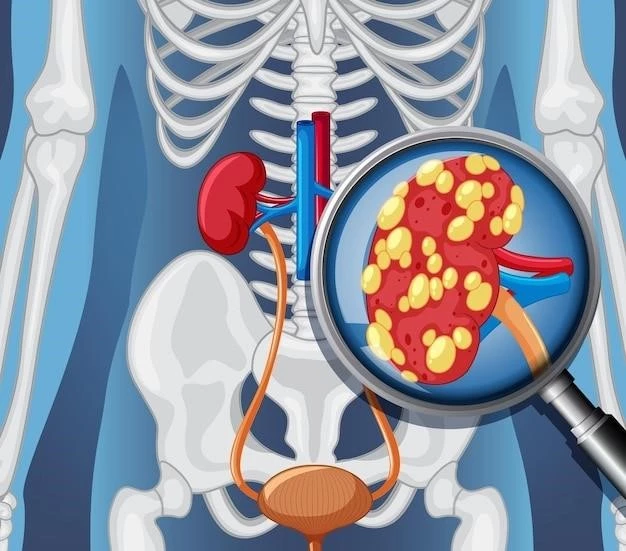Causes of Adrenal Hypoplasia
Adrenal hypoplasia can be caused by genetic mutations and developmental issues․
Genetic Mutations
Genetic mutations in genes like NR0B1 and DAX-1 are linked to adrenal hypoplasia․ These mutations can disrupt adrenal gland development, leading to hormone deficiencies and adrenal insufficiency․
Developmental Issues
Developmental issues during fetal development can lead to adrenal hypoplasia․ Factors like inadequate blood flow to the adrenal glands or abnormal tissue formation can impair the growth and function of the adrenal glands, resulting in hypoplasia․
Symptoms of Adrenal Hypoplasia
Common symptoms include fatigue, weakness, weight loss, and low blood pressure․
Fatigue and Weakness
Fatigue and weakness are hallmark symptoms of adrenal hypoplasia, often due to insufficient cortisol levels․ Patients may experience chronic tiredness, muscle weakness, and difficulty performing daily activities․
Weight Loss
Weight loss is a common symptom of adrenal hypoplasia due to hormone imbalances affecting metabolism․ Patients may experience unintentional weight loss, even with a regular diet, as a result of adrenal insufficiency․
Low Blood Pressure
Low blood pressure can occur in adrenal hypoplasia due to insufficient aldosterone production․ This hormone helps regulate blood pressure, and its deficiency can lead to hypotension in individuals with adrenal gland abnormalities․
Treatment Options for Adrenal Hypoplasia
Treatment options include hormone replacement therapy and medication management․
Hormone Replacement Therapy
Hormone replacement therapy is essential for patients with adrenal hypoplasia to replace deficient hormones like cortisol and aldosterone․ This therapy helps manage symptoms and restore hormone balance, improving overall quality of life․
Medication for Managing Symptoms
Medication plays a crucial role in managing symptoms of adrenal hypoplasia․ Drugs like hydrocortisone and fludrocortisone are commonly prescribed to replace deficient hormones and address specific symptoms such as low blood pressure and fatigue․
Adrenal Hypoplasia in Children
Neonatal Adrenal Insufficiency and Growth n Developmental Delays are key concerns․
Neonatal Adrenal Insufficiency
Neonatal adrenal insufficiency in children with adrenal hypoplasia requires prompt medical intervention; Newborns may present with symptoms like hypoglycemia, dehydration, and jaundice, necessitating immediate hormone replacement therapy to prevent life-threatening complications․
Growth and Developmental Delays
Children with adrenal hypoplasia may experience growth and developmental delays due to hormone deficiencies․ Proper monitoring, hormone replacement therapy, and early intervention are crucial to support normal growth patterns and address developmental challenges in affected children․
Adrenal Hypoplasia vs․ Addison’s Disease
Causes, symptoms, and diagnosis of adrenal hypoplasia differ from Addison’s disease․
Causes and Pathophysiology
While adrenal hypoplasia is primarily due to genetic mutations and developmental issues affecting adrenal gland growth, Addison’s disease results from autoimmune destruction of the adrenal cortex․ These distinct mechanisms lead to hormone deficiencies with varying underlying pathophysiologies․
Symptoms and Diagnosis
Distinct symptoms and diagnostic criteria differentiate adrenal hypoplasia from Addison’s disease․ While both conditions present with hormone deficiencies, adrenal hypoplasia is characterized by abnormal adrenal gland development, whereas Addison’s disease typically involves autoimmune-related damage to the adrenal glands․
Genetic Factors in Adrenal Hypoplasia
Inheritance patterns and known genetic mutations are key factors in adrenal hypoplasia․
Inheritance Patterns
Adrenal hypoplasia can follow X-linked recessive or autosomal recessive inheritance patterns․ Understanding these modes of inheritance is crucial in assessing the risk of passing on the condition to offspring and in genetic counseling for affected families․
Known Genetic Mutations
Known genetic mutations associated with adrenal hypoplasia include NR0B1 and DAX-1 mutations․ These mutations disrupt adrenal gland development, leading to hormone deficiencies and the manifestation of adrenal hypoplasia in affected individuals․
Complications of Adrenal Hypoplasia
Adrenal Crisis and Metabolic Imbalances are potential complications of this condition․
Adrenal Crisis
Adrenal crisis, a life-threatening condition, can occur in adrenal hypoplasia due to severe cortisol deficiency․ This medical emergency requires immediate intervention with intravenous steroids to prevent shock, organ failure, and even death in affected individuals․
Metabolic Imbalances
Metabolic imbalances, such as electrolyte abnormalities and glucose dysregulation, can arise in adrenal hypoplasia․ Adrenal insufficiency impacts metabolic processes, leading to issues like hyperkalemia, hyponatremia, and hypoglycemia, which require close monitoring and targeted management to prevent complications․

Lifestyle Management with Adrenal Hypoplasia
Stress management techniques and balanced diet n exercise are essential․
Stress Management Techniques
Implementing stress management techniques is crucial for individuals with adrenal hypoplasia to reduce cortisol imbalances․ Practices like mindfulness, relaxation exercises, and seeking support can help minimize stress levels and support adrenal health in daily life;
Balanced Diet and Exercise Recommendations
Maintaining a balanced diet rich in nutrients and regular exercise are vital for managing adrenal hypoplasia․ Adequate nutrition and physical activity support overall health, weight management, and energy levels, contributing to improved wellbeing and adrenal function․
